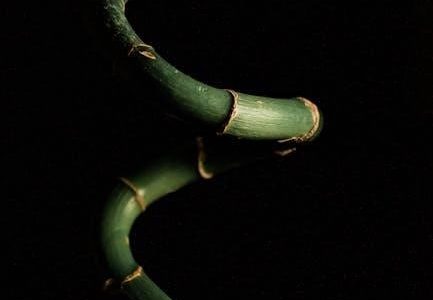Overview of ‘The Lost Hero’
The Lost Hero, the initial book in The Heroes of Olympus series, marks Rick Riordan’s return to Greek mythology. It introduces a new trio of demigods⁚ Jason, Piper, and Leo, who embark on a perilous quest. This novel blends adventure, humor, and Greek/Roman mythology, setting the stage for more stories within this universe.
The Heroes of Olympus series is a direct sequel to the popular Percy Jackson & the Olympians series, penned by Rick Riordan. This new saga expands upon the existing world of Greek mythology, seamlessly blending it with Roman elements. Unlike its predecessor, the narrative shifts from a first-person perspective to an alternating third-person viewpoint, focusing on a new generation of demigod heroes. This series introduces readers to Camp Half-Blood’s expanded world, revealing the existence of Roman demigods alongside their Greek counterparts. The Lost Hero serves as the perfect entry point into this broader universe, initiating a thrilling quest that sets the stage for the following books. It presents fresh conflicts, new characters, and an overall more complex storyline, ensuring both new and old fans find something exciting to latch onto. This series maintains the humor and adventure characteristic of Riordan’s work while venturing into new mythological ground.
Main Characters⁚ Jason, Piper, and Leo
The Lost Hero introduces three distinct protagonists⁚ Jason Grace, Piper McLean, and Leo Valdez, each with their unique backgrounds and abilities. Jason awakens with no memories, a mysterious past, and a natural leadership aura. Piper is the daughter of Aphrodite, struggling with her identity and a missing father. She possesses the power of charmspeak, a persuasive vocal ability. Leo, the son of Hephaestus, is a skilled mechanic with a mischievous personality and the power to manipulate fire. These three characters come together at Camp Half-Blood, forming a team despite their conflicting personalities and backgrounds. The narrative alternates between their viewpoints, offering readers a deeper insight into their thoughts, emotions, and motivations. Their growth and development are central to the story, as they learn to rely on each other while uncovering their own potential and destinies. Their dynamic interplay drives the plot and introduces the readers to new aspects of the Riordan universe.

Plot Summary

The Lost Hero follows Jason, Piper, and Leo as they embark on a quest to rescue the goddess Hera, who is held captive. Their journey involves facing numerous monsters and unraveling mysteries, all while discovering their true identities and destinies.
The Quest to Save Hera
The central driving force of The Lost Hero is the perilous quest undertaken by Jason, Piper, and Leo to rescue the powerful goddess Hera, also known as Juno in her Roman aspect. Hera has been imprisoned by an ancient enemy, and her captivity threatens to destabilize the delicate balance between the Greek and Roman pantheons. The young demigods, thrust into a world they barely understand, must navigate treacherous landscapes and confront formidable foes to reach Hera and release her from her bonds. This mission is not just a matter of saving a goddess; it is also crucial to preventing a catastrophic war from erupting. Their journey is fraught with danger, testing their courage, their newly discovered powers, and their ability to work together as a team. Along the way, they grapple with their own individual struggles and personal demons, making their quest all the more compelling.
Challenges and Monsters Faced
Throughout their quest to save Hera, Jason, Piper, and Leo encounter a multitude of challenges and face an array of terrifying monsters drawn from Greek and Roman mythology. They battle the monstrous Cyclopes, one-eyed giants known for their brute strength, and confront the allure and danger of the sorceress Medea. They also face King Midas, whose golden touch proves to be a deadly curse, and other mythical creatures that test their demigod abilities. These encounters are not just physical trials but also mental and emotional ones, forcing them to rely on their wits and resourcefulness. The monsters they face are not mere obstacles; they represent the forces of chaos that threaten the mortal world. Each battle pushes them to their limits, forcing them to learn and adapt quickly to survive. Their journey is a constant struggle for survival, highlighting the perils that come with being a demigod in a world full of ancient and powerful threats.

Themes and Literary Aspects
The Lost Hero explores themes of identity, memory, and teamwork. The novel blends Greek and Roman mythology, adding depth to the narrative. It also uses a third-person perspective, alternating between the viewpoints of Jason, Piper, and Leo.
Exploration of Identity and Memory
A central theme in The Lost Hero revolves around the characters’ struggles with identity and memory, particularly for Jason, who wakes up with complete amnesia. This loss of the past forces him to grapple with who he is and where he belongs. The search for his true self is a driving force in the narrative, as he tries to piece together fragmented clues about his life before the amnesia. This is compounded by the fact that he is introduced to a whole new world of demigods and mythology, making his identity even more complex. Piper and Leo also face questions of identity, as they discover more about their parentage and their roles in the world. Their internal conflicts add layers to the narrative and create a deeper connection with readers who struggle with similar questions of self-discovery. These internal battles, coupled with the external quest, form a powerful exploration of identity within the novel.
Blending Greek and Roman Mythology
The Lost Hero masterfully blends Greek and Roman mythology, a crucial element of the Heroes of Olympus series. The novel introduces the concept of Roman demigods, a significant divergence from the Greek-centric Percy Jackson series. This integration of two distinct mythological systems creates internal conflict for the characters, most notably Jason, who has ties to both. The story reveals that the gods have Roman and Greek aspects, creating a duality that influences the demigods’ powers and identities. This blending of two pantheons also leads to a more complex understanding of the mythological world, showing the interconnectedness and differences between the two cultures. The novel uses this blend to add new layers of intrigue and challenges for the characters, forcing them to navigate two different sets of rules and expectations. This dual nature of the world adds a unique element that enriches the story and expands the universe.

Reception and Impact
The Lost Hero was well-received, introducing new heroes and expanding the Percy Jackson universe. It successfully captivated audiences, who embraced the fresh characters and the blending of Greek and Roman mythology. Its popularity secured the success of the series.
Initial Audience Reception
The initial reception of The Lost Hero was overwhelmingly positive, with readers eagerly embracing the new direction of the Percy Jackson universe. Fans of Rick Riordan’s previous series were excited to delve into a fresh narrative, introducing three new demigod protagonists⁚ Jason, Piper, and Leo. The shift to alternating third-person perspectives allowed readers to connect with each character individually, fostering a deeper understanding of their thoughts and experiences. Many appreciated the seamless blend of Greek and Roman mythology, a new element that added complexity to the existing world. The book’s action-packed plot, coupled with Riordan’s signature humor, resonated well with both younger and older audiences. There was a sense of anticipation, wondering how these new characters would fit within the established storyline and what challenges they would face. The book’s success cemented its place within the broader literary landscape of young adult fantasy novels. The excitement surrounding its release proved the enduring appeal of Riordan’s storytelling style and his ability to create engaging narratives. The novel successfully launched a new era in the series, guaranteeing the continuation of the franchise.
Significance within the Percy Jackson Universe
The Lost Hero holds a crucial position within the Percy Jackson universe, marking a significant expansion of the established lore. It successfully transitions the narrative beyond Percy’s direct perspective, demonstrating that the world Riordan created extends far beyond just one hero. The introduction of Roman demigods alongside their Greek counterparts adds layers of complexity to the mythology and opens up new possibilities for conflict and alliances. This book establishes a more intricate dynamic, highlighting the differences and similarities between the Roman and Greek interpretations of the gods. Furthermore, The Lost Hero sets the stage for a larger, more interconnected narrative, showing that the threats facing the demigod world are not limited to one set of heroes. It shows the need for cooperation and the necessity of understanding diverse cultures within the demigod society. The novel’s exploration of memory loss and identity also adds a new dimension to the challenges faced by demigods, making it a compelling bridge to future installments within the series. Its success paved the way for future books in The Heroes of Olympus, expanding the universe.



